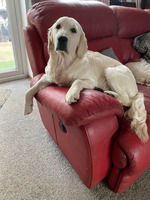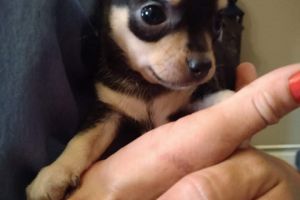Ensuring that your dog is well-trained is a part of responsible dog ownership. If you wish to get him trained by someone else, it is crucial to choose a trustworthy dog trainer.
Find out how to choose a dog trainer, what to prepare for your training session, and what essential training items you need.

How to choose a reputable dog trainer?
Being a dog trainer does not require a licence nor a formal qualification. Anyone can be a dog trainer, whether they have enough experience or not. To help you select the right dog trainer, here is a list of useful tips that can guide you.
Tip # 1: Identify the services you need from a dog trainer.
Think about the reason why your dog needs training. Does he need help with behavioural issues, or does he need to learn basic commands?
Each trainer offers different services. So choose someone that best fits your dog's needs. Here are the most common dog training services being provided:
- Puppy Socialisation Classes
This training teaches and encourages puppies to socialise with their fellow pups. If you have a shy pup, he will be grouped with other shy dogs in the class.
This is to keep him from getting overwhelmed by active and extroverted puppies. Basic commands are also included in this training. - Adult Dog Training Classes
This dog training focuses on basic obedience, such as teaching the dog to stay and wait. It also provides the opportunity for dog owners to bond with their canine buddies.
There is a wide range of activities that you and your dog can participate in. These include scent work, flyball, tricks, rally, hoopers, tribal, agility and more.
- One-on-One Dog Training
This is also known as private training. It has a more personal and focused approach as the training specifically caters to your dog's needs.
Dogs with behavioural problems such as aggression and excessive mouthing can benefit from this training.
The session is often done in your house since it allows the dog trainer to observe your dog in his home environment. It enables them to create a plan and walk you through on how to solve your dog's behavioural problem. - Residential Dog Training
In residential dog training, your dog will be sent off to a training facility for a couple of weeks. You have the option to stay with him and help in preparation.
Dogs with behavioural problems are often enrolled in residential training. They can learn social obedience, controlled greeting with someone, general socialisation, and recall while being distracted by other dogs.


Tip #2: Ask what methods of training they use.
Although this sounds basic, it is one of the most important things you should know in a dog trainer. Find a trainer who uses the rewards-based dog training method and positive reinforcement. This does not only help in motivating your dog but also fosters a strong bond between him and his human companions.
Tip #3: Observe the dog trainer's personality.
Talk to the dog trainers and observe how they communicate and interact with dogs and other people. You may also ask their former clients what they are like when training.
If possible, try attending their training sessions or classes. This way, you can determine their style and approach to training. Make sure that they are patient, gentle, and encouraging towards the dogs.
Tip #4: Check their experience and credentials.
Each trainer has different skill and experiences. Some learned through hands-on work and apprenticeships. Others prefer to gain knowledge and skills in dog training by taking the academic route.
Check if they have certification with dog training organisations such as the APDT (Association of Pet Dog Trainers). Whilst this is not a mandatory requirement and does not always reflect their training skills, it is proof that they are dedicated to their profession.

What should you do before a dog training session?
Help your pooch prepare a few hours before the training so that he will do well during the training sessions. Follow these tips to prepare your dog for the exciting day ahead:
- Limit his meal in the morning.
Feed him less during breakfast since he will receive treats once the training starts. This will increase his food drive and prevent him from getting distracted. - Take an advance potty break.
Make sure that your dog's bowel and bladder are empty before the training starts. This will reduce the risk of potty accidents during the training session. - Light exercise helps.
If you have a high-energy pooch, you may need to burn out his excess energy. Taking him for a short walk would be enough. Doing this will make sure that he is calm and not hyperactive throughout the training session.
Try not to over-exercise him either, especially for an older dog, so he can still have enough energy to carry out the training session.

What should you bring during dog training/puppy class?
There are a few things you need to prepare a day or two before your dog's training. Below are essential items that your dog needs for the training:
- Necessary Papers
You may need to present documentation as proof that your dog is healthy and fit to participate in training. Depending on the trainer, they might ask for licences and rabies shot records.
Some will require vaccinations, including hepatitis, distemper, leptospirosis, and parvo. If you have a puppy, he should have complete vaccinations. Those that are not up to date with their vaccinations may be asked to present a titre test result. - Clicker
If you enrolled your pooch in clicker training, make sure you have a clicker prepared. Consider choosing a clicker with a wrist attachment if you are in a group class. It is easier to use and will not easily get lost. - Dog treats
Keep your dog safe, make sure to choose the right size of dog treats for your dog. Too small or too big can be a choking hazard.
Stock up various kinds of dog treats with different flavours as well. This will keep him motivated and focused on training. For new skills that require your dog's total concentration, use your dog's favourite treat. - Collar and Lead
Both are essential items in training as they will help you manage your dog. Ask the trainer's advice if you want collar and lead that are suitable for training.
Some dog trainers may ask you to bring a harness instead of a collar. Make sure that it fits your dog and is comfortable to wear. However, you will find in most Kennel Club run classes, harnesses are not allowed. - Doggy Bag
Potty accidents can happen during training. This usually happens to puppies since they get too excited. It is always a good idea to keep a few doggy bags ready. - Portable Water Bowl
It is quicker and easier to give your furry friend a refreshment during training if you bring your own water bowl. This also lessens the risk of potentially catching germs from the shared water bowl.





